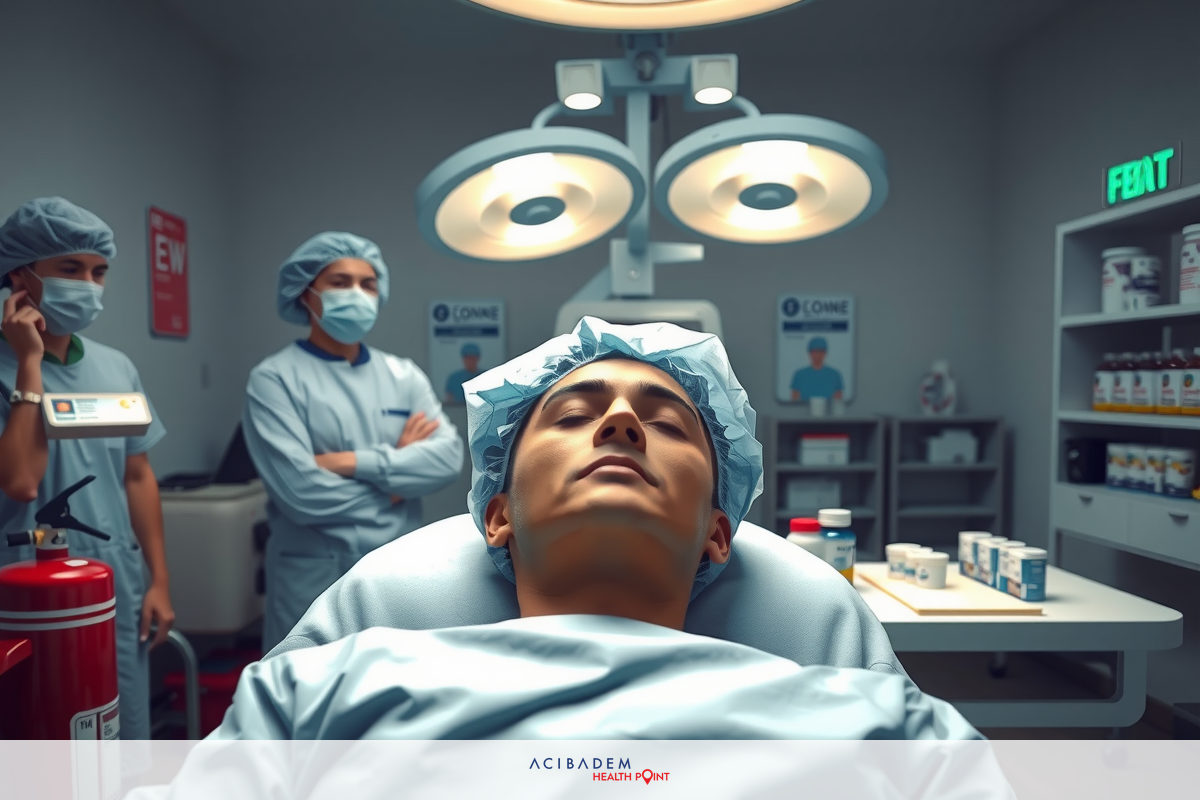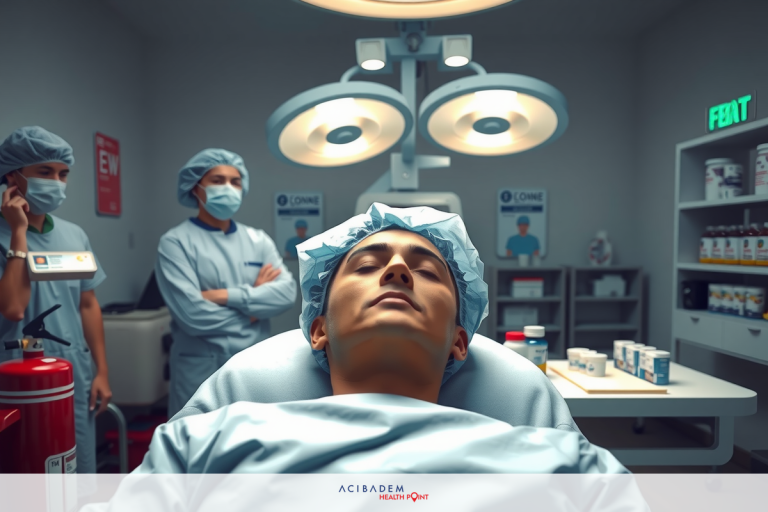What Not to Do Before Laser Eye Surgery
What Not to Do Before Laser Eye Surgery Strolling down a road less travelled, laser eye surgery can seem daunting. It is packed with uncertainties and filled with questions on actions needed before the big day. From medication considerations to hygiene practices, there are several layers of precautionary measures that demand your attention.
Medication interactions play an unexpected yet pivotal role in the surgical outcome. Certain drugs could potentially heighten complications during surgery, making it essential for patients to understand which ones should be avoided. Similarly, one cannot underestimate the power of good hygiene habits in safeguarding against infections around the time of surgery.
Safeguarding your eyes from accidental injuries also forms a crucial part of preoperative preparations. This includes taking care while engaging in sports activities or navigating hazardous environments where exposure to sharp objects might occur – adding another layer to this intricate maze called preparation for laser eye surgery.
Avoiding Certain Medications
As one embarks on the journey towards a clearer view, laser eye surgery stands as a beacon of hope. An intricate dance of preoperative precautions and preparations paints this path, with each step echoing profound implications on surgical outcomes. One such measure is an astute awareness of certain medications that could potentially influence your procedure.
The realm of drug interactions casts a wide net, ensnaring unsuspecting victims in its complex web. Certain over-the-counter medicines can thin the blood or compromise immune responses – factors which may impact healing post-surgery. Anticoagulants and non-steroidal anti-inflammatory drugs (NSAIDs) often fall into this category. On the other hand, some prescriptions which regulate blood pressure or manage diabetes might also require adjustments to dosages prior to surgery.
Contradictions come dressed in many forms – from side effects that play hide-and-seek within our systems to complications rising unannounced during surgeries. Ensuring you disclose all your current medication usage to your surgeon aids them in navigating these murky waters, steering clear away from potential contraindications lurking beneath their surface. This shared knowledge arms both patient and doctor alike with potent shields against unforeseen risks while ensuring safety measures are firmly placed at every step along this journey towards better vision.
Proper Hygiene Practices
Surgery, in any form, is akin to inviting an unknown guest into your home. In the case of laser eye surgery, this guest not only demands a clean house but also meticulous personal hygiene from its host. The significance of maintaining stringent cleanliness routines before such procedures cannot be overstated as it forms a crucial cornerstone in the fortress of preoperative precautions.
A dance between caution and preparation begins with simple steps like regular face washing. Keeping your face devoid of excess oil or dirt can keep potential infections at bay while preparing your skin for the surgical process ahead.
1. Use prescribed eye drops: These serve a double purpose – not only do they keep your eyes moist but also ensure that any residual bacteria are washed away. 2. Wash hands frequently: This habit minimizes chances of transferring germs to your eyes inadvertently. 3. Avoid wearing contact lenses: Contact lenses may cause minor abrasions in the cornea which could complicate surgery. 4. Keep towels and pillowcases clean:
Regularly changing these items reduces bacterial buildup which might lead to post-surgical infections.

In conclusion, ensuring proper hygiene practices prior to laser eye surgery significantly reduces risk factors thereby aiding both patient and surgeon on their shared journey towards improved vision through safe measures and strategies for avoiding risks during this critical period of preparation.
Protecting Your Eyes from Injury
The journey of preparation prior to laser eye surgery is akin to a carefully choreographed dance, where each step carries an immense weight of significance. Amidst the whirlwind of safety measures and precautions that form this intricate ballet, one aspect often overlooked is the paramount importance of protecting your eyes from accidental injuries.
In the grand theatre of everyday life, our eyes play out their roles against various backdrops – some benign, others fraught with potential hazards. Engaging in sports activities or navigating through hazardous environments presents unseen risks – sharp objects lying in wait or swift movements capable of causing harm. The days leading up to your surgery demand heightened vigilance towards such dangers; it’s not just about avoiding risks but actively shielding your eyes against them.
Eye protection isn’t merely a concept—it’s a call to action. It begins as simply as donning safety goggles when needed or ensuring adequate lighting while reading or working on screens. Every act becomes part of an ongoing dialogue between you and your environment—a conversation marked by awareness and care.
In conclusion, protective measures taken before undergoing laser eye surgery are like silent warriors—guardians standing guard over the fortress that is our sight. They serve as shields warding off potential complications during surgery while also paving the path for smoother recovery post-procedure—all crucial components in optimizing the outcome and success rate for this transformative medical procedure.
Frequently Asked Questions
Q: What are some medications to avoid before laser eye surgery? A: Certain over-the-counter and prescription medications can potentially interfere with the surgical process or healing post-surgery. Examples include anticoagulants, non-steroidal anti-inflammatory drugs (NSAIDs), certain blood pressure medication, and some diabetes management drugs. Always discuss your current medication usage with your surgeon prior to surgery. Q: Why is hygiene important ahead of laser eye surgery? A: Maintaining good hygiene habits minimizes the risk of infections which could complicate both the surgical procedure as well as recovery post-surgery. Regular face washing, using prescribed eye drops, frequent hand washing and avoiding contact lenses are all part of maintaining optimal preoperative cleanliness. Q: How does one protect their eyes from accidental injuries before surgery? A: Eye protection involves being mindful in situations that present potential hazards such as sports activities or environments where sharp objects may be present. Wearing safety goggles when needed and ensuring adequate lighting while reading or working on screens also contribute to safeguarding your eyes against injury. Q: Do these protective measures guarantee a successful outcome for my laser eye surgery? A: While adherence to preoperative precautions like medication adjustments, proper hygiene practices and protecting your eyes from injury significantly reduces risks associated with laser eye surgery, it doesn't 'guarantee' success since individual outcomes can vary based on multiple factors including overall health status and how one's body responds to the procedure.
Certain over-the-counter and prescription medications can potentially interfere with the surgical process or healing post-surgery. Examples include anticoagulants, non-steroidal anti-inflammatory drugs (NSAIDs), certain blood pressure medication, and some diabetes management drugs. Always discuss your current medication usage with your surgeon prior to surgery.
Why is hygiene important ahead of laser eye surgery?
Maintaining good hygiene habits minimizes the risk of infections which could complicate both the surgical procedure as well as recovery post-surgery. Regular face washing, using prescribed eye drops, frequent hand washing and avoiding contact lenses are all part of maintaining optimal preoperative cleanliness.
How does one protect their eyes from accidental injuries before surgery?
Eye protection involves being mindful in situations that present potential hazards such as sports activities or environments where sharp objects may be present. Wearing safety goggles when needed and ensuring adequate lighting while reading or working on screens also contribute to safeguarding your eyes against injury.
Do these protective measures guarantee a successful outcome for my laser eye surgery?
While adherence to preoperative precautions like medication adjustments, proper hygiene practices and protecting your eyes from injury significantly reduces risks associated with laser eye surgery, it doesn't 'guarantee' success since individual outcomes can vary based on multiple factors including overall health status and how one's body responds to the procedure.
This information is intended for general informational purposes only and does not constitute medical advice. Always consult with a healthcare professional for accurate information.








